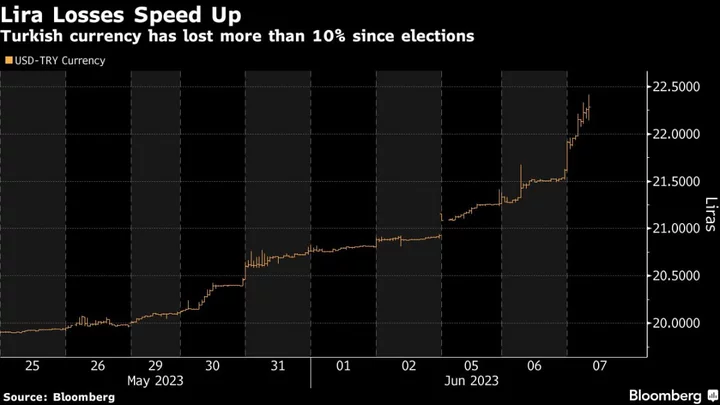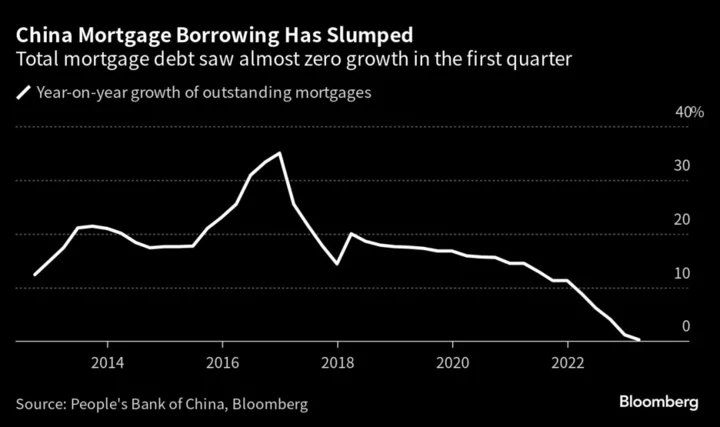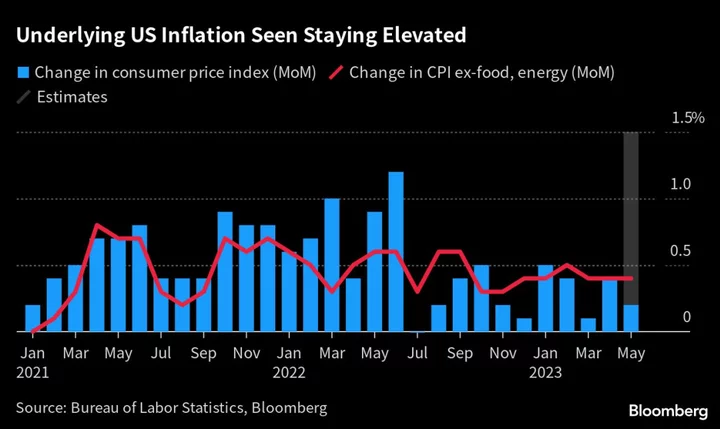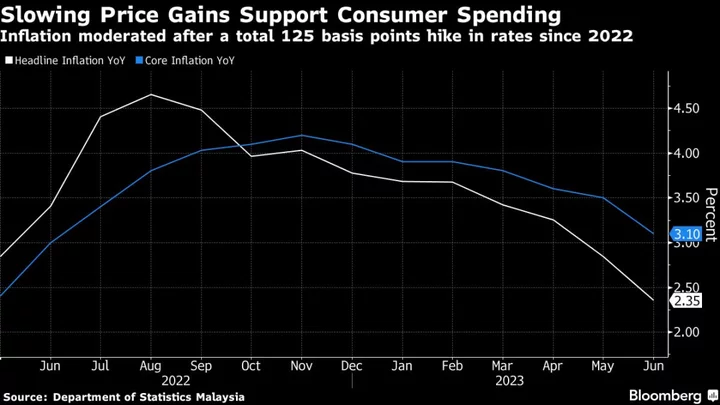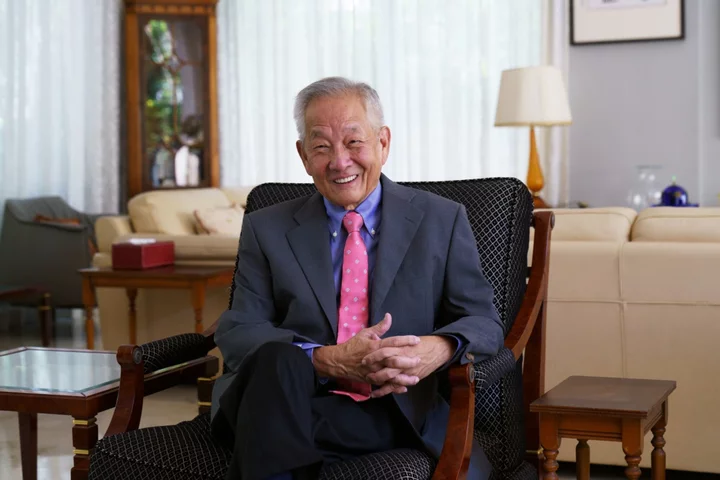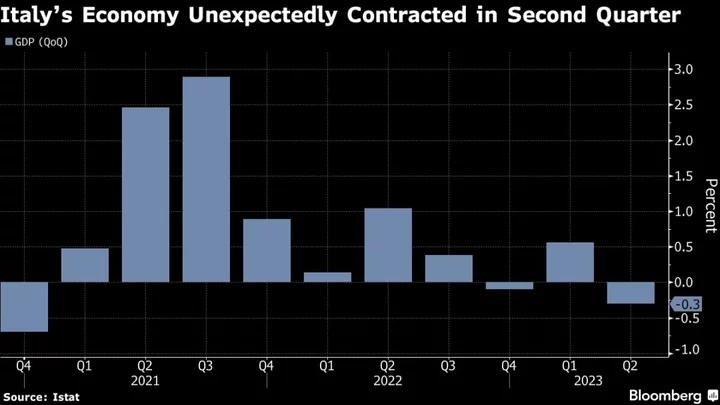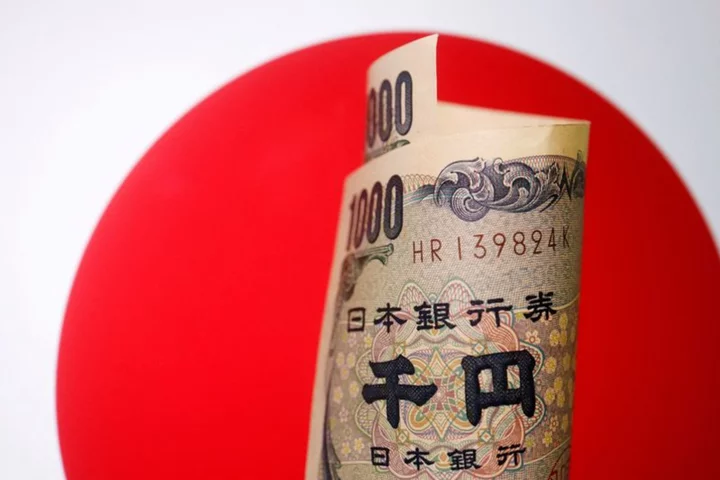Turkey’s lira plunged to a record low as state lenders temporarily halted dollar sales, in a sign the new economic administration is abandoning a costly intervention strategy as part of an expected turn toward more conventional economic policies.
The Treasury and Finance Ministry, under its newly appointed chief Mehmet Simsek, asked the central bank to ease off on currency-market interventions via the state banks, people with knowledge of the matter told Bloomberg on Wednesday, asking not to be named because the discussions were private.
When the lira’s decline exceeded 6% on the day, the Treasury allowed the sales to resume, according to one of the people. The central bank and Treasury declined to comment.
The currency had earlier dropped about 7%, the most in more than a year, to as low as 23.1734 per dollar, weakening for a 12th straight day. It was trading 6.7% lower at 1:10 p.m. in Istanbul.
The new economy chief’s request partially reverses policies in place since August, when the central bank tightened its grip over the currency. Dollar sales and a tangle of banking regulations aimed at reducing demand for hard currency held the lira relatively stable until the second-round presidential election on May 28.
President Recep Tayyip Erdogan, who won reelection to a five-year term, has long championed an unorthodox economic policy based on ultra-low interest rates. The costs of that policy piled up in the form of depleted foreign-currency reserves, an inflationary spike, and an exodus of foreign capital, leading markets to price in a large depreciation after the vote as investors bet that it was unsustainable.
Minister Simsek
Erdogan’s appointment of Simsek, a former Merrill Lynch strategist, has intensified expectations of a return to orthodoxy and abandonment of state intervention in favor of allowing the market to determine fair value for Turkish assets. Since the election on May 28, the lira has weakened more than 13% against the dollar.
READ MORE: Erdogan’s Wall Street Guy Is Back to Replenish Wiped-Out Coffers
Investors are betting that more weakness is coming. The options market is currently pricing about an 80% chance that the lira will hit 25 per dollar within the next three months, and a more than 60% chance that it could hit 27 per dollar, according to data compiled by Bloomberg.
Turkey’s state banks don’t comment on their interventions in the foreign-exchange market. A former governor of the central bank said in 2020 that state-owned lenders carry out transactions in line with regulatory limits and could continue to be active in the currency market.
While the lira plunged, other corners of the Turkish market indicated confidence in the policy shift. The main stocks index rose 3.3%, extending gains since the vote to 22% and reversing this year’s losses. Turkey’s dollar bonds also extended their advance, with the extra yield investors demand to hold Turkey’s dollar debt over US Treasuries narrowing 44 basis points this week, according to a JPMorgan Chase & Co. index.
The central bank’s next meeting to set interest rates is scheduled for June 22 and investors expect a hike, fueled by projections of a change at the top post, currently occupied by Governor Sahap Kavcioglu. Like Erdogan, Kavcioglu has championed low interest rates, cutting the benchmark rate to 8.5% from 19% during his tenure even as inflation accelerated to a 24-year high above 85% last year.
Read more: Global Banks Try to Put a Number on Turkish Rate Hike This Month
Hafize Gaye Erkan, a banking executive in the US, is a potential candidate for governor and met Simsek on Monday in Ankara, people with knowledge of the discussions told Bloomberg.
Read more: Turkey Sounds Out First Republic’s Ex-Exec Over Central Bank Job
Erkan worked for nearly a decade at Goldman Sachs Group Inc. and she’s the former co-CEO of San Francisco based lender First Republic Bank. Just over a year after her departure from First Republic, it became the second-biggest bank failure in US history.
Simsek and his team will face an uphill battle, with the lira’s weakness adding to elevated inflationary pressures ahead of local elections next year. Despite headline inflation’s slowdown last month, core inflation accelerated.
What Bloomberg Economics Says...
“We expect the government’s pricing and tax policies, together with pre-election and quake related fiscal spending and an accommodating monetary policy stance, to add to inflationary pressures going forward. As such, we forecast price gains to move back above 40% in the summer and end the year at 43%.”
— Selva Bahar Baziki, economist. Click here to read more.
Goldman Sachs Group Inc. analysts recently revised their forecast for the dollar-lira pair higher, citing increased pressure on the currency. The bank sees the lira depreciating to 28 per dollar in 12 months, compared with a previous projection of 22, according to a report dated June 3.
--With assistance from Yumi Teso.
(Updates with details on policy decision, markets from second paragraph.)
Author: Tugce Ozsoy, Kerim Karakaya and Beril Akman

